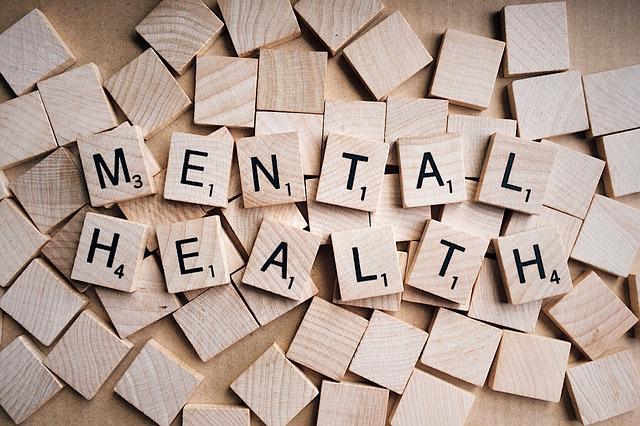You might be wondering what is mental health. In this post, we will know more about this burning question. Knowing more about mental health and illnesses can help you to overcome stigma and get better. Find out about common mental disorders and the treatment options available to those who suffer from them.
What is Mental Health?
Mental health refers to our psychological, social, and emotional well-being. It can affect how we think, feel and act. It can also affect how we deal with stress, make decisions, and relate to others. It is essential to maintain mental health at all ages, from childhood through adolescence and into adulthood.
Your thinking, mood, and behavior may be affected by mental health issues. Mental health problems can be caused by many factors, including:
- Biological Factors, such as genes and brain chemistry
- Life experiences such as abuse or trauma
- Family history with mental health problems

Although mental health problems are quite common, there is help available. Many people with mental illness can improve and some even recover completely.
Factors Affecting Mental Health

Mental health does not just mean avoiding mental illness. You can think of it as a mental state that allows you to thrive and enjoy your life fully.
Everybody experiences low points in their lives. People’s ability to deal with difficult situations varies from person to person. This is a major factor in determining whether they enjoy their lives.
Here are some factors that can affect youth’s mental health:
1. The influence of our environment and our experiences on our mental well-being

Life experiences and biology have an impact on how we feel, think, and react to different situations, challenges, and opportunities. Mental health is affected by how we are treated, what we do with our money, who we live with, and where we work.
We will all be confronted with stressful situations at one time or another. However, it is our ability and willingness to manage these situations that can have a negative impact on our mental health.
Social connections – It is important to have meaningful relationships with others. We are more likely to experience grief when we go through a difficult situation or lose a relationship. Anxiety and loneliness can have a negative impact on our mental health. It can even affect those who are surrounded by others. It is becoming harder to overcome feelings of loneliness due to the current pandemic, as well as social restrictions.
Health issues – Poor mental health can be caused by injuries, diseases, and other problems. Certain physical factors, such as brain injury, birth trauma, and drug abuse, can directly impact brain chemistry and lead to mental illness. Poor physical health is more common than you might think. It can impact self-esteem and the ability of people to achieve their goals. This can lead to depression, unhappiness, or even suicide. To achieve good mental health, it is important to get the best treatment for the physical and psychological problems.
Lossing someone or divorce – It is very difficult to go through a separation, divorce, or the death of someone close. It is crucial for all people, but especially for youth, to find ways to deal with these changes and to adjust. Young people can be affected for many years by how they deal with grief. Professional help is recommended for children who are having trouble coping.
Money and housing – Anxiety about our financial, housing, or work situation can lead to mental illness. Unemployment can erode our sense of purpose, which can make it hard to maintain self-confidence.
Changes in life – Life is always changing. It doesn’t matter if the change is sudden or expected. We can still struggle to deal with it. Changes such as moving home, starting university, or having a child, can all have a negative impact on our mental health. Self-care can improve your mental health.
Addiction – Poor mental health can be caused by addiction and substance abuse. Poor mental health can also lead to substance misuse and addictive behaviors. This could lead to a vicious circle.

Neurochemistry – It is the study of chemicals such as neurotransmitters and other molecules that affect the function of neurons. Neurons are nerve cells that send and receive signals from your brain. A person’s brain structure and neurochemistry may make them vulnerable to developing a mental illness. A traumatic brain injury can cause mental illness.
2. The influence of our genes and our upbringing on our mental well-being
Research shows that mental disorders such as chronic depression and schizoaffective disorder can be inherited. Mental illness can be passed to relatives for many reasons. The environment, such as those mentioned above, can play a role in the development of mental illness. These situations can increase your risk of developing a mental illness. However, it doesn’t necessarily mean you will.
Childhood trauma and upbringing – Our brain development at a young age is influenced by the environment we live in. Traumatic events can have a lasting and detrimental impact on our mental health.
Abuse – Abused children are at high risk for their mental health and are more susceptible to developing mental disorders and mental illness in childhood and later in life. Abusive behavior can be verbal, sexual, or physical. Sometimes it may not be obvious or easy to recognize. No matter what form abuse takes, it cannot be tolerated. It is essential that children are protected from abuse and supported to overcome its harmful effects. Abusive behavior can lead to low self-esteem, anxiety, depression, isolation, anger, and other negative feelings that can hinder a child’s ability to live a happy, fulfilled life.
Genetics – Although some research has suggested that mental illness may run in families, there is no gene currently known to accurately predict or diagnose mental problems. Many people with mental health issues don’t have relatives who are affected.
Symptoms of Mental Illness
Knowing the signs and symptoms of mental illness will help you to recognize when you, or someone you love, need help. These are the symptoms:
- Feeling depressed, exhausted, or useless. Everybody feels down at times. If that feeling lasts more than two weeks, and you feel guilt or despair, you may be depressed. Depression is distinguished from normal sadness and mood swings by persistent and severe symptoms. Depression can also manifest as sleep problems, low self-esteem, and a loss of enjoyment of what you used to enjoy.
- Continual worries and fears. An anxiety disorder could be for people who are anxious or worried about their lives.
- Anxiety, panic, fear, and panic can all be sudden. Panic disorder can manifest as heart palpitations, chest pains, dizziness, and trembling.
- Undiagnosed symptoms may not be normal. Symptoms that persist can indicate emotional stress overload or emotional upset. This can include stomachaches, headaches, and chronic pain (especially backaches), with no obvious cause.
- Energy loss and chronic fatigue are signs of fatigue. Your body may shut down if it is unable to handle the emotional overload. Emotional distress and depression can manifest as a feeling of being too tired to do the things that you love.
- Avoiding contact with other people. It could indicate stress overload, depression, anxiety, social phobia, or even a lack of friends and family.
- Bipolar disorder is characterized by intense mood swings. High-risk behaviors such as gambling and excessive spending, drug abuse, and high-risk sexual activity may occur during mania or high energy periods. Suicidal thoughts are also possible. Individuals will vary in the length and severity of these cycles.
We hope now you understood what is mental health. All mental health issues can be tackled with the right counsellor. If you are feeling any of the symptoms of mental illness, do not forget to contact Dr. Neha Mehta.
Also, Read
9 Amazing Marriage Tips For A Happy Married Life In 2022
How To Improve Mental Health? 10 Tips To Improve Mental Well-Being
How To Overcome Suicidal Thoughts? 7 Steps To Deal With Suicidal Thought
Mental health tips for covid-19 – Tips to Improve your Mental Health












